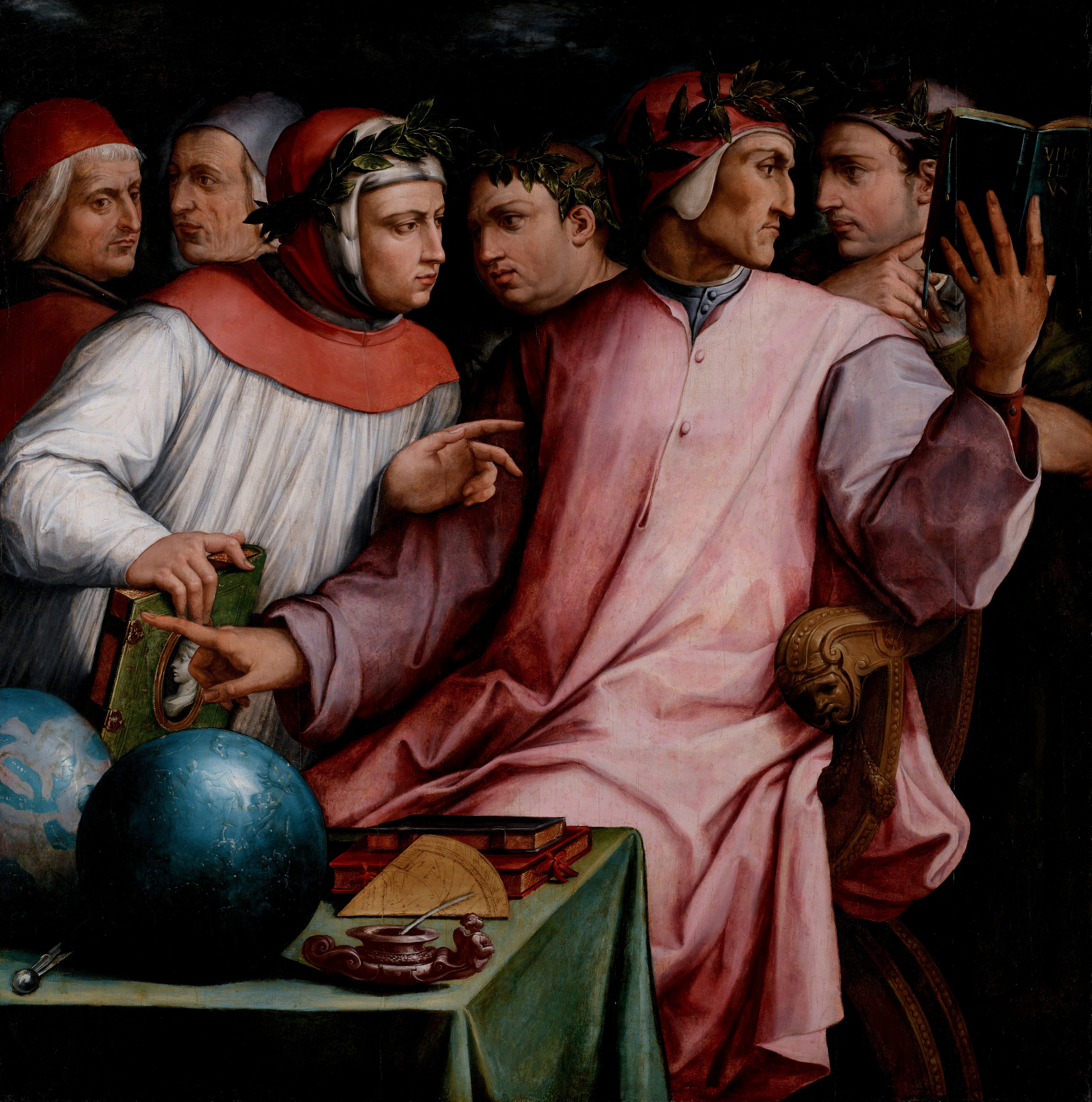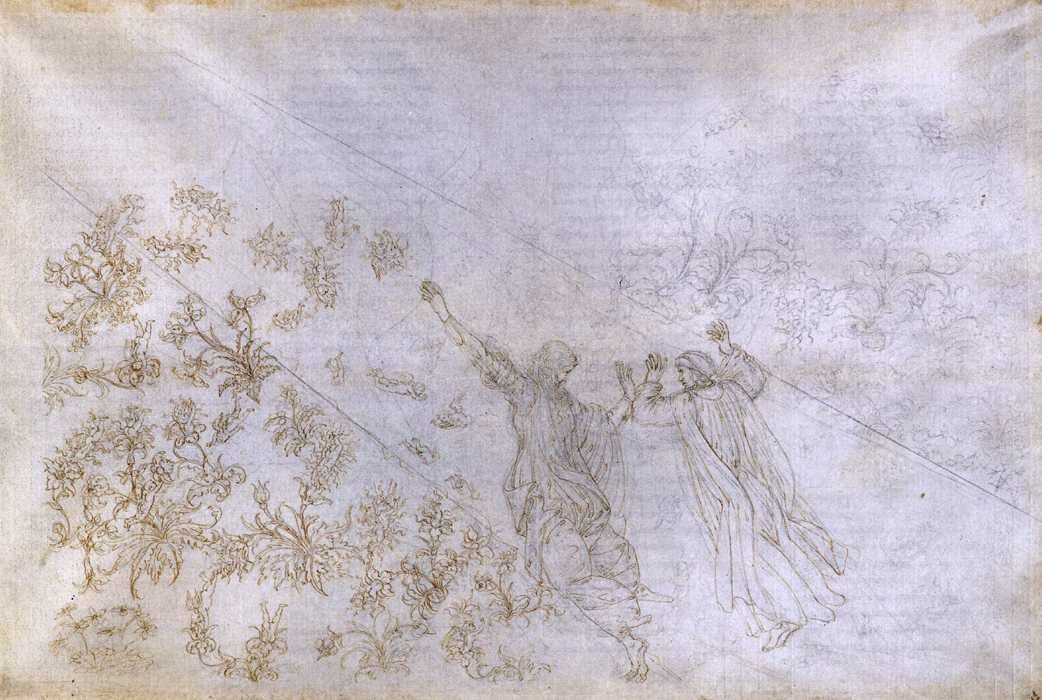Note: I am currently reading Joseph Luzzi’s book on Botticelli’s drawings of The Divine Comedy. This essay is inspired by one of the chapters from this book.

Even the donkey-men sang the verses of Dante.
~ Jacob Burckhardt
It took Florence 706 years to lift the exile of Dante Alighieri, the author of The Divine Comedy, one of the greatest works of literature in human history. In 2008, Florence’s council voted 19 in favour for and 5 against, showing that the decision was far from unanimous.
‘Salty is the taste of another man’s bread’ - wrote Dante about exile. That ‘salty tasting bread’ however, bore some sweet fruits since it was in exile that Dante began to write his epic journey to hell, purgatory, and then paradise.
The Divine Comedy quickly became an integral part of Florence’s cultural heritage. Michelangelo, Leonardo, Brunelleschi, Botticelli, and many other prominent figures of what would later be known as the Renaissance began reciting, interpreting, and drawing inspiration from Dante’s masterpiece. However, not everyone was as enchanted by Dante’s genius. While Leonardo and Michelangelo competed against each other in ‘Dante competitions’ to see which one could provide the best interpretation for the key passages of the Commedia, Francesco Petrarch thought of the great epic more as a second-rate work.
When Petrarch was forty-six he received a letter from a poet who admired him. The letter was written in impeccable Latin and it came from Giovanni Bocaccio1, the author of another famous literary work Decameron. Bocaccio was just nine years younger than Petrarch.
The letter set in motion a close friendship between the two until Petrarch discovered Bocaccio’s passion for Dante’s masterpiece. Joseph Luzzi, in his book Botticelli’s Secret, writes that:
Petrarch was trying to position himself as the great Italian epic poet, author of the long-winded Latin poem Africa, on the Second Punic War and the Roman general Scipio Africanus, the work that would supposedly make him Virgil’s heir.
Luzzi writes that this pedantic position of Petrarch is a bit ironic since what really made Petrarch famous was not his epic poem on the Punic War but his verses to Laura, ‘that same love poetry in Tuscan dialect that he derided in Dante.’2
Petrarch believed that poetry must be aimed at the educated few and the fact that even 'donkey-men' can recite Dante meant that the Divine Comedy is nothing but a pop song that will be soon forgotten.3 He asked his admirer, Boccacio, ‘how idiots in the tavern can appreciate poetry’.
The only person I truly feel sorry for in this situation was Boccaccio himself. He was torn in this titanic struggle between his hero of the past - Dante, and his hero of the present - Petrarch. Petrarch embodied the revival of antiquity, laying the groundwork for what would soon be called ‘humanism,’ whereas Dante represented something distinctly different.
Dante believed that poets preserve the beauty of everyday speech, everyday experience. Poetry was about religious faith that unites every believer, while Petrarch was reanimating the Roman and Greek culture and thus focussing on the individual in the world of uncertainties.
In the midst of this cosmic divide stood Bocaccio, who was torn between Dante’s faith and Petrarchan philosophy. Dante saw life as a journey with a clear map leading to fulfillment, while for Petrarch, no such map existed; instead, we find ourselves on an uncertain path where our virtues are the only guide.

Luzzi writes that ‘Dante mania’ peaked in the summer of 1373 (about fifty years after the poet’s death) and Florentines petitioned to establish a lecture series on their Somma Poeta, the Supreme Poet.
The man who was chosen to act as a guide through the map of The Divine Comedy was Giovanni Bocaccio himself. Bocaccio was a distinguished scholar and a devout man of God by the time of this lecture series. As Luzzi writes, Bocaccio regretted the more sensuous literary sensibilities of his youthful, intensely bawdy Decameron4.
One could speculate and assume that Bocaccio, later in his life, preferred Dante’s faith over Petrarchan philosophy. The task, however, was not made easy for Bocaccio. His fellow humanists were against teaching of sublimities of Dante’s genius to the uninitiated masses. (footnote on humanists here) 5
The pressure on Bocaccio was so strong that he breathed a sigh of relief when the lecture series was halted by the plague and then by his illness. In total, he gave an astonishing sixty lectures but only reached Inferno 17. Despite this, multiple Dante ‘reading groups’ continued to exist in different cities across Italy. The intellectuals and believers in Ferrara, Rome, Pisa, Siena and Venice kept Dante’s legacy alive.
To this day, the battle between Dante’s faith and Petrachan’s philosophy unfolds. It unfolds not only in lecture halls of universities but also in the hearts of each of us.
Confide tibimet
Proofread and edited by Lisa Statler
When I saved a wonderful copy of Bocaccio’s Decameron from a British pub, my friends joked and called him Focaccio, which I found funny, especially after the sixth pint of beer.
J. Luzzi Botticelli’s Secret p.43
Luzzi writes that Petrarch compared Dante to nonentities such as Guitone D’Arezzo whose mediocre works were quickly forgotten. How wrong Petrarch was, my dear reader!
J. Luzzi Botticelli’s Secret p.39 (Those who are unfamiliar with Decameron must know that it is full of erotic scenes. My dad told me that even in the sixties when he was growing up, teachers of literature were against teenagers reading this book.)
The more I read about individuals who call themselves ‘humanists’ more I witness that the word ‘humanism’ can often be replaced by ‘snobbery’ - ‘virtue snobbery’ in particular. Humanists, such as Petrarch, were so “humane” that they were against the Florentine citizens whom they considered ‘uncouth’ to get familiar with Dante. Maybe, my belief of what humanism actually stands for is false, but I believe that the cornerstone of being humane is making knowledge and virtue accessible to everyone. This book and this one both mention how snobbish against the general public some so-called humanists such as T.S. Eliot or G.K. Chesterton were.





Wonderful! A few things. First, are you liking the Botticelli book? I saw it on your insta and thought I must get it.
Second, what a wonderful painting by Giorgio Vasari! I need to print it out and put it on my wall.
And this post makes me want to go back to the Divine Comedy... it's just so wonderful! And I still have to read Petrarch, mea culpa!